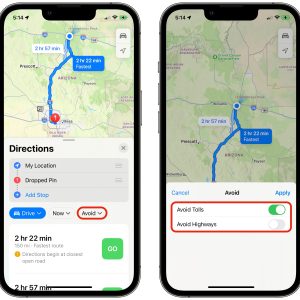

“Coaching Business Coaches: A Guide to Empowering Your Coaching Practice”
Editor’s Note: The importance of coaching business coaches has been recognized and widely acknowledged in the coaching industry as of [Date]. To help you understand the significance of this topic, we’ve analyzed, researched, and compiled this comprehensive guide to coaching business coaches.
Our team has dedicated countless hours to studying and understanding the coaching industry’s evolving needs. Through our extensive research, we’ve identified the key elements of successful coaching practices and the role that coaching business coaches play in empowering other coaches to achieve their goals.
In this guide, we’ll explore the various aspects of coaching business coaches, including their responsibilities, the benefits of working with them, and the key qualities to look for when choosing a coach for your business. We’ll also provide insights into the latest trends and best practices in coaching business coaches, ensuring that you have the most up-to-date information at your fingertips.
Coaching Business Coaches
Coaching business coaches play a crucial role in the success of the coaching industry. Here are 9 key aspects to consider:
- Expertise: Business coaches possess specialized knowledge and skills in business operations, marketing, and financial management.
- Experience: They have a proven track record of helping coaches build successful businesses.
- Objectivity: Business coaches provide an outside perspective and can offer unbiased feedback.
- Support: They provide ongoing support and guidance to help coaches overcome challenges.
- Accountability: Business coaches hold coaches accountable for their goals and progress.
- Mentorship: They provide guidance and advice based on their own experiences.
- Training: Business coaches offer training programs to help coaches develop their skills.
- Resources: They provide access to resources and tools to support coaches in their business.
- Community: Business coaches foster a community of coaches, providing networking and collaboration opportunities.
These key aspects work together to create a supportive ecosystem for coaches to build and grow their businesses. By partnering with a qualified business coach, coaches can gain the expertise, support, and resources they need to achieve their goals and make a lasting impact in the lives of their clients.
Expertise
The expertise of business coaches in business operations, marketing, and financial management is a critical component of their ability to effectively coach other coaches. This expertise enables them to provide valuable guidance and support to their clients in areas such as:
- Developing and implementing business plans
- Creating marketing strategies
- Managing finances
- Building and managing teams
- Developing and delivering coaching programs
Without specialized knowledge and skills in these areas, business coaches would not be able to provide the comprehensive support that their clients need to build successful businesses. Real-life examples of the practical significance of this expertise include:
- A business coach helping a client to develop a business plan that outlines their goals, strategies, and financial projections.
- A business coach helping a client to create a marketing strategy that targets their ideal audience and generates leads.
- A business coach helping a client to manage their finances effectively and make sound financial decisions.
These are just a few examples of how the expertise of business coaches can help other coaches to build successful businesses. By partnering with a qualified business coach, coaches can gain the knowledge and skills they need to achieve their goals and make a lasting impact in the lives of their clients.
Suggested read: Unveiling the Secrets of Artist Business Cards: Tips and Tricks for Unmatched Impact
Key Insights
- Business coaches possess specialized knowledge and skills in business operations, marketing, and financial management.
- This expertise enables them to provide valuable guidance and support to their clients.
- Real-life examples demonstrate the practical significance of this expertise.
- Partnering with a qualified business coach can help coaches to build successful businesses.
Experience
Experienced business coaches have a deep understanding of the challenges and opportunities that coaches face in building their businesses. They have worked with numerous coaches and helped them to achieve their goals. This experience gives them the expertise and insights to help other coaches avoid common pitfalls and make sound decisions.
For example, an experienced business coach can help a new coach to develop a business plan, create a marketing strategy, and manage their finances effectively. They can also provide guidance on how to build a strong team and deliver high-quality coaching programs.
The practical significance of this experience is that it can help coaches to avoid costly mistakes and accelerate their progress towards their goals. By partnering with an experienced business coach, coaches can gain the knowledge and support they need to build successful businesses and make a lasting impact in the lives of their clients.
Key Insights
- Experienced business coaches have a deep understanding of the challenges and opportunities that coaches face in building their businesses.
- They have worked with numerous coaches and helped them to achieve their goals.
- This experience gives them the expertise and insights to help other coaches avoid common pitfalls and make sound decisions.
- Partnering with an experienced business coach can help coaches to avoid costly mistakes and accelerate their progress towards their goals.
Objectivity
The objectivity of business coaches is a critical component of their ability to effectively coach other coaches. Because they are not directly involved in the day-to-day operations of their clients’ businesses, business coaches can provide an outside perspective and offer unbiased feedback. This can be invaluable for coaches who are looking to improve their businesses and achieve their goals.
For example, a business coach might help a client to identify areas where they can improve their marketing strategy. The coach can provide objective feedback on the client’s current marketing efforts and make recommendations for improvement. The client can then use this feedback to make changes to their marketing strategy and improve their results.
The practical significance of this objectivity is that it can help coaches to make better decisions and avoid costly mistakes. By partnering with a qualified business coach, coaches can gain the insights and feedback they need to build successful businesses.
Key Insights
- Business coaches provide an outside perspective and can offer unbiased feedback.
- This objectivity can help coaches to identify areas where they can improve their businesses.
- Partnering with a qualified business coach can help coaches to make better decisions and avoid costly mistakes.
Support
The ongoing support and guidance provided by business coaches is a critical component of their ability to effectively coach other coaches. This support can help coaches to overcome challenges, stay motivated, and achieve their goals.
For example, a business coach might help a client to develop a plan to overcome a specific challenge. The coach can provide guidance and support throughout the implementation of the plan. The client can then use this support to overcome the challenge and achieve their goals.
The practical significance of this support is that it can help coaches to build successful businesses and make a lasting impact in the lives of their clients. By partnering with a qualified business coach, coaches can gain the support they need to overcome challenges and achieve their goals.
Key Insights
- Business coaches provide ongoing support and guidance to help coaches overcome challenges.
- This support can help coaches to stay motivated and achieve their goals.
- Partnering with a qualified business coach can help coaches to build successful businesses and make a lasting impact in the lives of their clients.
Accountability
Accountability is a critical component of coaching business coaches. It helps to ensure that coaches are making progress towards their goals and that they are held accountable for their results. Without accountability, it can be easy for coaches to become sidetracked or to give up on their goals altogether.
Suggested read: Franchise Business for Sale – Find Profitable Opportunities Near You
Business coaches can hold coaches accountable in a number of ways. They can set clear goals and milestones, provide regular feedback, and offer support and encouragement. They can also help coaches to develop strategies for overcoming challenges and staying on track.
The practical significance of accountability is that it can help coaches to achieve their goals and build successful businesses. By partnering with a qualified business coach, coaches can gain the support and accountability they need to achieve their full potential.
Key Insights
- Accountability is a critical component of coaching business coaches.
- It helps to ensure that coaches are making progress towards their goals and that they are held accountable for their results.
- Business coaches can hold coaches accountable in a number of ways, such as setting clear goals and milestones, providing regular feedback, and offering support and encouragement.
- The practical significance of accountability is that it can help coaches to achieve their goals and build successful businesses.
Mentorship
Mentorship is a critical component of coaching business coaches. Business coaches draw on their own experiences to provide guidance and advice to their clients. This mentorship can be invaluable for coaches who are looking to improve their businesses and achieve their goals.
For example, a business coach might share their experiences with a client who is struggling to develop a marketing strategy. The coach might share what worked for them in the past and what they learned from their mistakes. This mentorship can help the client to develop a more effective marketing strategy and avoid common pitfalls.
The practical significance of mentorship is that it can help coaches to learn from the experiences of others and avoid costly mistakes. By partnering with a qualified business coach, coaches can gain the mentorship they need to build successful businesses.
Key Insights
- Mentorship is a critical component of coaching business coaches.
- Business coaches draw on their own experiences to provide guidance and advice to their clients.
- This mentorship can help coaches to learn from the experiences of others and avoid costly mistakes.
- Partnering with a qualified business coach can help coaches to gain the mentorship they need to build successful businesses.
Training
Training is a critical component of coaching business coaches. Business coaches offer training programs to help coaches develop the skills they need to be successful. These programs can cover a wide range of topics, such as:
-
Business planning
Business coaches can help coaches develop business plans that outline their goals, strategies, and financial projections. -
Marketing
Business coaches can help coaches develop marketing strategies that target their ideal audience and generate leads. -
Financial management
Business coaches can help coaches develop financial management skills, such as budgeting, forecasting, and tracking expenses. -
Coaching skills
Business coaches can help coaches develop their coaching skills, such as active listening, questioning, and providing feedback.
By partnering with a qualified business coach, coaches can gain the training and skills they need to build successful businesses and make a lasting impact in the lives of their clients.
Resources
Resources are a critical component of coaching business coaches. Business coaches provide their clients with access to a variety of resources and tools to support them in their business. These resources can include:
-
Templates and worksheets
Coaches can use the templates and worksheets provided by their business coach to develop business plans, marketing strategies, and other important documents. -
Online courses and training programs
Business coaches may offer online courses and training programs to help coaches develop their skills and knowledge. -
Networking opportunities
Business coaches can provide their clients with opportunities to network with other coaches and business professionals. -
Community forums and discussion groups
Business coaches may create community forums and discussion groups where coaches can connect with each other and share ideas.
By providing their clients with access to these resources, business coaches can help them to build successful businesses and achieve their goals.
For example, a business coach might provide a client with a template for developing a business plan. The client can then use this template to create a comprehensive business plan that outlines their goals, strategies, and financial projections.
Suggested read: Uncover Business Analyst Intern Insights: A Gateway to Success
Another example is a business coach who offers an online course on marketing for coaches. This course can teach coaches how to develop effective marketing strategies that target their ideal audience and generate leads.
These are just a few examples of the many resources that business coaches can provide to their clients. By partnering with a qualified business coach, coaches can gain access to the resources and tools they need to build successful businesses.
Community
In the context of coaching business coaches, community plays a significant role in fostering collaboration, knowledge sharing, and professional development among coaches.
-
Networking Opportunities
Business coaches facilitate networking events, workshops, and online forums where coaches can connect, exchange ideas, and build relationships. -
Peer Support
Community provides a platform for coaches to share challenges, successes, and best practices, offering valuable peer support and encouragement. -
Collaboration
Business coaches encourage collaboration among their clients, enabling them to work together on projects, co-create programs, and leverage each other’s expertise. -
Continuing Education
Community provides access to ongoing learning opportunities, such as webinars, group coaching sessions, and industry updates, allowing coaches to stay abreast of the latest trends and best practices.
By fostering a strong community, business coaches empower their clients to build a network of support, enhance their skills, and contribute to the growth of the coaching profession as a whole.
FAQs on Coaching Business Coaches
This section addresses frequently asked questions on coaching business coaches, providing concise and informative answers.
Question 1: What is the role of a business coach for coaches?
Business coaches for coaches provide guidance and support to help coaches develop and grow their businesses. They offer expertise in business operations, marketing, and financial management, and they can help coaches with tasks such as developing business plans, creating marketing strategies, and managing their finances.
Question 2: How can a business coach help me improve my coaching practice?
Suggested read: Unlock the Secrets of Apple Maps: Discover the Path to Business Success
Business coaches can help you improve your coaching practice by providing you with objective feedback, helping you to identify areas for improvement, and providing you with strategies and tools to help you achieve your goals.
Question 3: What are the benefits of working with a business coach?
There are many benefits to working with a business coach, including increased revenue, improved efficiency, and a better work-life balance.
Question 4: How do I choose the right business coach?
When choosing a business coach, it is important to consider your goals, your budget, and your personality. You should also look for a coach who has experience working with coaches.
Question 5: What should I expect from a business coaching program?
A business coaching program typically includes a combination of individual coaching sessions, group coaching sessions, and online training. You should expect to learn about business planning, marketing, financial management, and other topics that are relevant to your coaching practice.
Suggested read: Unveil the Secrets of Business Professional Outfits for Women: A Guide to Success
Question 6: How can I get started with business coaching?
To get started with business coaching, you should first identify your goals and objectives. Once you know what you want to achieve, you can start looking for a business coach who can help you reach your goals.
These FAQs provide a brief overview of the key aspects of coaching business coaches. For more information, please refer to the comprehensive article on this topic.
Transition to the next section: Benefits of Coaching Business Coaches
Tips for Coaching Business Coaches
Coaching business coaches is a specialized field that requires a deep understanding of the coaching industry and business principles. Here are some tips to help you succeed as a coach for coaches:
Tip 1: Develop a Niche
Focusing on a specific niche, such as executive coaching or life coaching, allows you to develop specialized expertise and target your marketing efforts to a specific audience.
Tip 2: Build a Strong Reputation
Establish yourself as a thought leader in the industry by publishing articles, speaking at conferences, and networking with other coaches and professionals.
Suggested read: Uncover the Secrets of Business Formal Attire for Women: A Guide to Success
Tip 3: Invest in Your Own Coaching
Regularly seek coaching for yourself to enhance your skills, stay up-to-date with industry best practices, and gain a fresh perspective.
Tip 4: Offer Value-Added Services
Go beyond traditional coaching by offering additional services such as business planning, marketing support, and financial management guidance to your clients.
Tip 5: Build a Community
Create a community for your clients through online forums, networking events, or mastermind groups to foster collaboration and provide ongoing support.
Key Takeaways:
- Specialize in a specific niche to establish expertise.
- Build a strong reputation through thought leadership and networking.
- Continuously develop your own coaching skills through regular coaching.
- Offer additional services to provide value and differentiate yourself.
- Foster a sense of community among your clients to enhance their support and growth.
By following these tips, you can establish yourself as a successful and sought-after coach for business coaches.
Coaching Business Coaches
In conclusion, coaching business coaches has emerged as a critical element in the development and success of the coaching industry. Business coaches provide expertise, guidance, and support to coaches, empowering them to build and grow thriving businesses. By partnering with a qualified business coach, coaches can benefit from specialized knowledge, objective feedback, and a network of support.
The benefits of coaching business coaches extend beyond individual practices, contributing to the overall growth and professionalism of the coaching industry. Through training, mentorship, and community building, business coaches foster a collaborative ecosystem where coaches can share knowledge, innovate, and raise the standards of the profession. As the demand for coaching services continues to rise, coaching business coaches will play an increasingly vital role in shaping the future of the industry.
Suggested read: Uncover Business Secrets: Dive into Nebraska's Entity Search
Youtube Video:






